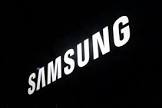$SSNLF $HXSCL $HYMTF
#SouthKorea #StockMarket #Samsung #SKHynix #Hyundai #MartialLaw #PoliticalCrisis #PresidentYoon #AsianMarkets #InvestorConfidence #MarketVolatility #GlobalEconomy
South Korean markets suffered a significant blow on Wednesday, December 3, 2024, as escalating political turmoil took center stage. The KOSPI index dropped nearly 2.7% during early trading hours, rattled by President Yoon Suk Yeol’s surprise declaration of martial law amid heightened domestic tensions. The move was quickly rescinded following fierce resistance from parliament and public backlash, but the damage to market sentiment was evident. The abrupt policy U-turn left investors unsettled, prompting a sell-off in major Korean equities. Among the hardest-hit were tech giants Samsung Electronics and SK Hynix, as well as automaker Hyundai Motor, whose stocks declined 4.1%, 5.3%, and 3.8%, respectively. Analysts suggest these drops were exacerbated by concerns over potential disruptions to Korea’s export-reliant economy and geopolitical credibility.
The political crisis comes at a fragile time for the South Korean economy, which is heavily reliant on semiconductor exports and automotive manufacturing. Samsung Electronics, the nation’s bellwether stock, faced heavy selling pressure as global investors sought refuge in safer assets. SK Hynix, another semiconductor juggernaut, experienced sharper declines, reflecting fears of further economic instability and possible interruptions in chip production. Hyundai Motor’s significant losses highlight the broader uncertainty affecting South Korea’s industrial sector. These firms are key players in the country’s economy, accounting for significant portions of its GDP and export revenues. The sell-off in these major conglomerates not only dragged down the KOSPI index but also raised alarm bells on the international stage, prompting global fund managers to reassess their Korean holdings.
Investor confidence took a sharp hit amid the uncertainty, which some experts warn could have longer-term implications for the South Korean financial markets. The sudden imposition and withdrawal of martial law left markets questioning the stability of political governance under President Yoon’s administration. Foreign investors, who hold a substantial stake in South Korea’s equity markets, were particularly spooked by the volatility and moved swiftly to cut their exposure. This aligns with a broader trend of risk-off sentiment prevailing across global markets as geopolitical events continue to weigh on economic outlooks. The Korean won also weakened against the U.S. dollar, reflecting heightened concerns over capital outflows and reduced foreign interest in South Korean assets. Meanwhile, government bond yields rose slightly, signaling an increase in perceived risk.
The broader implications of Wednesday’s market rout extend well beyond South Korea’s borders. As one of Asia’s leading economies, South Korea’s market turmoil has the potential to ripple through the region, particularly as global investors draw parallels between political risks and economic stability in other emerging markets. Additionally, the declines in Korean semiconductor stocks could reverberate through the global tech supply chain, given the critical role these firms play in producing chips for the technology, automotive, and consumer electronics sectors. While the situation remains fluid, analysts emphasize the urgent need for stability and clarity from the Yoon administration to restore confidence in the South Korean markets. Investors will be closely watching the government’s next steps to manage this crisis and mitigate its fallout on both domestic and global fronts.











Comments are closed.